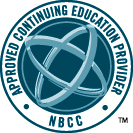
Building Professional Excellence

Leveraging CCE Credentials to Address Ethical Concerns and Steps to Apply for CCE Scholarships
This presentation will explore common ethical challenges that CCE credential holders may face in their professional roles. Participants will also gain insight from the experiences of current CCE credential holders, as well as reflect on their own approaches to handling ethical dilemmas. Presenters will offer guidance on how to effectively address and navigate multiple ethical issues.
After this presentation, participants will be able to:
- identify common ethical challenges encountered by professionals holding CCE credentials (BC-TMH, ACS, BCC, GCDF).
- describe how ethical principles apply within the scope of each credential and evaluate real-world examples.
- apply ethical decision-making models to professional dilemmas related to telehealth, supervision, coaching, and career development.
- outline the steps to apply for CCE scholarships and how they support ethical and professional development.
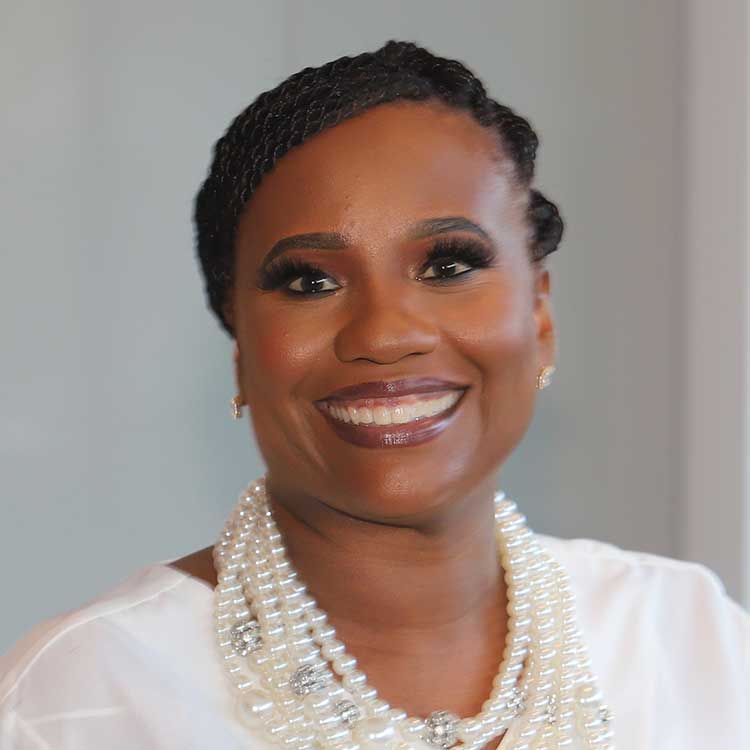
Dannette Berksteiner, EdD, NCC, CCMHC, ACS, LPC, CTRTC, is a core counseling faculty member at University of Phoenix. She received a bachelor’s degree in workforce education training and development from Southern Illinois University Carbondale, a master’s degree in counseling from Webster University, and a doctorate in counselor education and supervision from Argosy University. Dr. Berksteiner is a Licensed Professional Counselor (LPC), National Certified Counselor (NCC), Certified Clinical Mental Health Counselor (CCMHC), Approved Clinical Supervisor (ACS), Choice Theory Reality Therapy Certified (CTRTC), and Mindfulness Based Stress Reduction (MBSR) Qualified Teacher Level 1. Dr. Berksteiner was a recipient of the 2014 NBCCF Minority Fellowship Program (Doctoral). Prior to entering the counseling profession, she practiced as a Licensed Practical Nurse for over 10 years; therefore, she implements a holistic and integrative approach to client treatment. Dr. Berksteiner has over 20 years of experience as a clinical mental health provider and has had the opportunity to work with a vast population of clients that include children, adolescents, families, couples, and individuals. In addition to Dr. Berksteiner’s experience in health care and academia, she is also a well-sought-after speaker and trainer.
Dr. Berksteiner has presented at conferences and provided training at the local, regional, national, and international levels. These workshops and trainings include topics on the unique needs of the military population, integrative approaches to wellness, and multicultural awareness. She believes in the power of the community to heal, uplift, and empower others. This is demonstrated through her altruistic commitment to civic engagement in her local community and profession. Dr. Berksteiner has served on several national advisory council committees that support members of the counseling profession. Through her volunteerism and advocacy efforts, she embodies the servant leadership model while collaborating with individuals, organizations, and institutions to improve the lives of others.
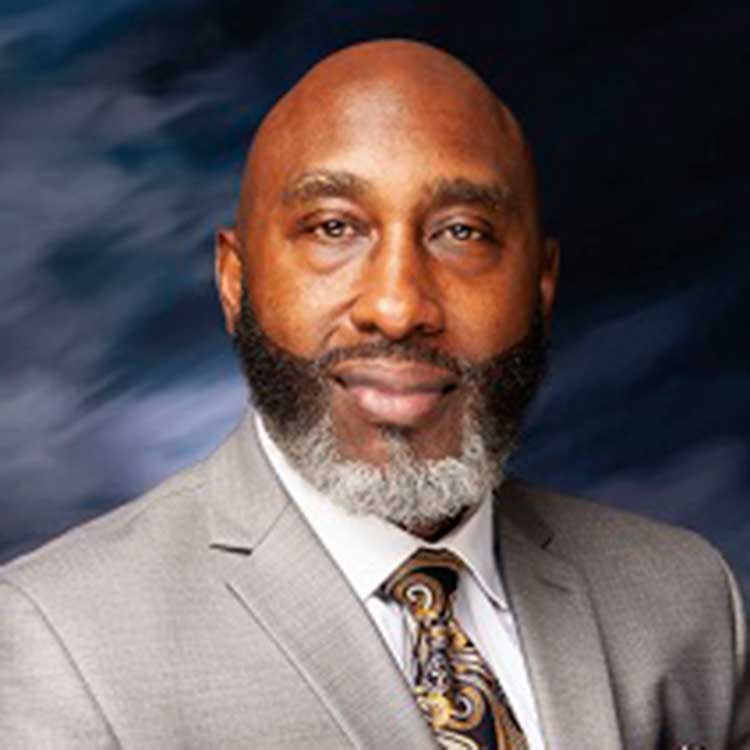
Brenden A. Hargett, PhD, NCC, MAC, LCMHC, LCAS, serves as the Director of Ethics for the National Board for Certified Counselors and Adjunct Faculty at North Carolina Agricultural and Technical (A&T) State University. He is a behavioral health professional with years of experience as a clinician, clinical supervisor and manager, consultant/trainer, researcher, counselor, and counselor educator in a variety of settings, both public and private.
Dr. Hargett holds a PhD in rehabilitation counseling and rehabilitation counselor education from North Carolina A&T State University in Greensboro, N.C. He is credentialed as a National Certified Counselor (NCC), Master of Addictions Counselor (MAC), a North Carolina Licensed Clinical Mental Health Counselor (LCMHC), and a North Carolina Licensed Clinical Addictions Specialist (LCAS).
Dr. Hargett has served as a volunteer mentor and presenter at symposiums for NBCCF’s fellowship program. In 2019, he was appointed by Gov. Roy Cooper to serve as a member of the North Carolina Commission for Mental Health, Developmental Disabilities, and Substance Abuse Services.

Winifert Lawson-Graves, EdD, provides business development and marketing services for NBCC and Affiliates. CCE’s Business Development Department is responsible for the acquisition of new business, its training provider relations, partner relations, and the learning management system, CCE Academy. Before joining the organization, she served as Vice President of Marketing and Development for an international nonprofit in Rincon, Puerto Rico; Director of Marketing for a national nonprofit in Rhode Island; and Public Relations Manager for the Center for Creative Leadership in Greensboro, N.C. Dr. Lawson-Graves received a bachelor’s degree in journalism from Norfolk State University, a master’s degree in communication studies from the University of North Carolina at Greensboro, and a doctorate in educational leadership and change from Fielding Graduate University.
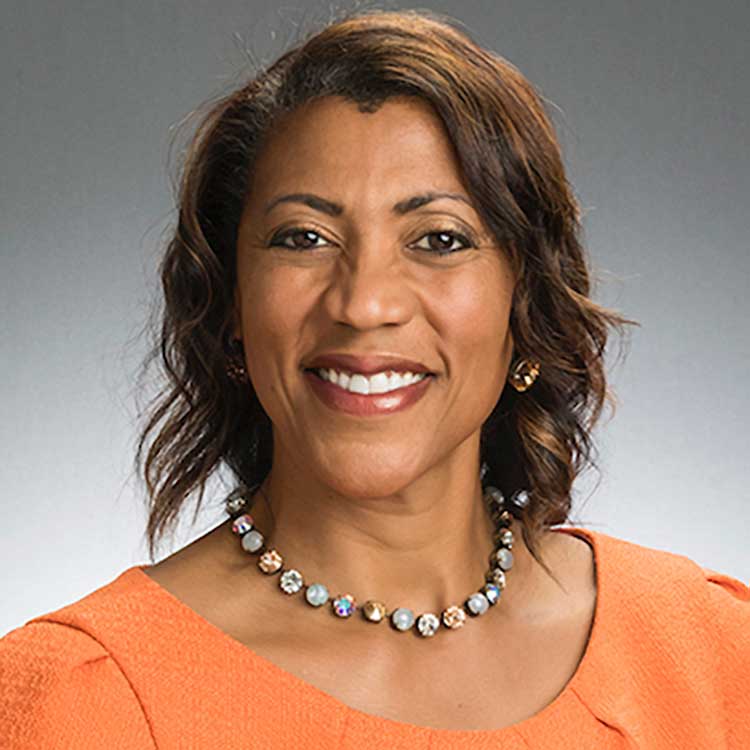
Taunya Marie Tinsley, PhD, DMin, NCC, ACS, BCC, LPC, LPCC, the visionary owner of Transitions Counseling Service LLC and Love & Basketball Ministries and Life Coaching Services, is a seasoned professional with over 30 years of extensive experience. She provides a comprehensive range of counseling services and transformative leadership development training. She excels in clinical counseling, higher education, and athletic administration. Currently serving as the Director of Certification Services at the National Board for Certified Counselors, Dr. Tinsley has held numerous prestigious leadership positions within various counseling associations including the North Atlantic Regional Representative and President of the Association for Multicultural Counseling and Development (AMCD), President of the Pennsylvania College Counseling Association, and President of the Pennsylvania Counseling Association. Her collaboration with the American Counseling Association in developing the Sports Counseling Interest Network and the Anti-racism Commission and her leadership roles in other counseling associations highlight her dedication to making a positive impact. Her educational credentials include a bachelor’s degree from Augsburg College, a master’s degree from the University of Iowa, and a PhD from Duquesne University, complemented by various professional certifications. Dr. Tinsley’s expertise includes sports counseling, youth and adult development through sports, spiritual interventions in counseling, and multicultural and social justice issues. Her dedication to her clients and commitment to professional growth and community advocacy have established her as a highly respected and influential figure in counseling and other academic and professional disciplines.
Guiding the Career Development of Generation Z in an Evolving Era
Every generation brings unique characteristics, and Generation Z (Gen Z, born 1997–2012) is no exception. Growing up in the digital age and experiencing a global pandemic, Gen Z possesses distinct strengths and faces unique challenges in career development. Rapid technological innovation and global connectivity have broadened access to information and career opportunities while simultaneously empowering and complicating decision-making.
Global Career Development Facilitators (GCDFs) are equipped with specialized training in career development theory, assessment, labor market information, ethical practice, and employability strategies, allowing them to provide informed, client-centered support. This session explores Gen Z’s traits, strengths, and challenges observed in both individual and group settings while offering practical strategies, program ideas, and tools to support self-discovery, career exploration, job search readiness, and overall well-being throughout their lifelong career journey.
After this presentation, participants will be able to:
- identify key characteristics of Generation Z relevant to career development from a Global Career Development Facilitator (GCDF) perspective.
- recognize how Gen Z’s strengths and challenges are present in career exploration and planning, informed by the GCDF core competencies.
- apply GCDF-aligned individual and group strategies to support Gen Z college students effectively in career-related settings, emphasizing client-centered and ethical practice.
Presenters
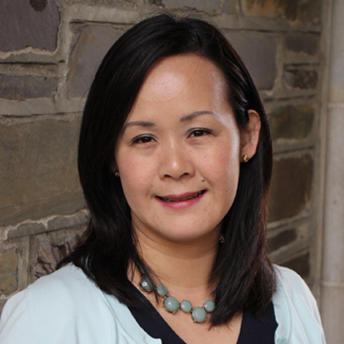
Satomi Yaji Chudasama, MS, NCC, GCDF, CCC
Satomi Yaji Chudasama is a National Certified Counselor, Global Career Development Facilitator, and Certified Career Counselor with over two decades of experience. Satomi currently serves as the Director of Student Engagement at the Center for Career Development at Princeton University. Since 2001, she has provided individual and group career development services to students and alumni across a wide range of academic and professional interests, working in both public and private university settings in the United States.
In addition to her work in higher education, Satomi has held multiple leadership roles within the career development community. She is a founding member and Past President of the Asia Pacific Career Development Association and has served as founding Chair of the International Student Services Committee within the National Career Development Association. She has contributed scholarly work through publications with national and international organizations.
Satomi received a Master of Science degree in counselor education from Syracuse University.
When Counseling Meets Coaching: Integrating Approaches for Enhanced Client Outcomes
As demand increases for holistic, person-centered, and goal-oriented client care, many mental health professionals are exploring how to expand their services while maintaining ethical integrity. The Board Certified Coach (BCC) credential, developed by the Center for Credentialing & Education (CCE), offers licensed counselors a structured, evidence-based path to integrate coaching into their clinical practice.
This informative webinar will provide a comprehensive overview of the BCC credential, its benefits, eligibility criteria, and relevance to counselors seeking to broaden their scope of practice. Participants will explore how coaching methodologies can complement traditional counseling by offering a flexible, forward-focused framework that supports client autonomy and long-term goal achievement. The session will address key ethical considerations when blending therapeutic and coaching roles, ensuring professionals remain grounded in best practices. It will also offer valuable insights and next steps for expanding your impact in a rapidly evolving field.
After this presentation, participants will be able to:
- differentiate between counseling and coaching roles, with an emphasis on ethical integration and scope of practice.
- identify coaching strategies and skill-building opportunities that support both enhanced client outcomes and ongoing professional growth.
- describe the purpose, eligibility criteria, and continuing education requirements of the BCC credential as a pathway for professional development.
Presenters
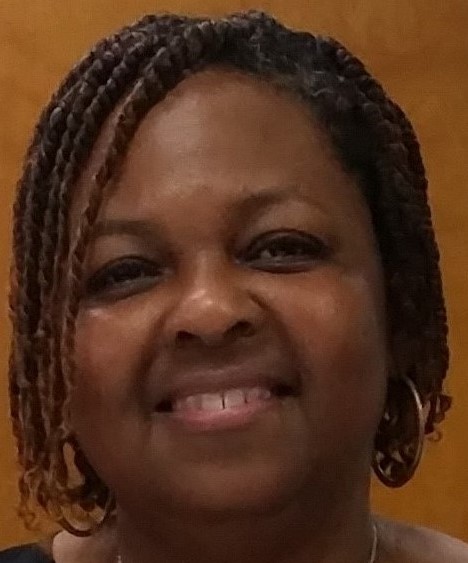
Lisa Connors, PhD, NCC, BCC, LCPC, LPC, FT
Dr. Lisa Connors is the Associate Pastor of In His Image International Ministry in Maryland. She is a Licensed Clinical Professional Counselor (LCPC) in Maryland, a Licensed Professional Counselor (LPC) in Pennsylvania, a National Certified Counselor (NCC), a Board Certified Coach (BCC), and a Fellow in Thanatology (FT).
Dr. Connors works tirelessly to help others reach their fullest potential, helping and supporting those who have been stigmatized. Because of her lived experiences, she gives back with her greatest passion, working with individuals affected by HIV/AIDS, substance use and mental health disorders, violence, abuse, trauma, grief, loss, and injustices. What Dr. Connors has gained and learned in her life is what she desires to offer others. Knowing she has impacted someone’s life is her aspiration. Her motto is: “God has blessed her to be a blessing to others.”
Dr. Connors received a PhD in psychology from Walden University, a Master of Arts in professional counseling from Liberty University, and a Master of Divinity from Howard University. She also holds a Bachelor of Arts in social work from UNC Greensboro. She is actively involved in several professional organizations, including the National Association of Social Workers (NASW), where she currently serves on the Maryland Chapter Board of Directors; the Pennsylvania Association of Addiction Professionals (PAAP); the Maryland Counseling Association (MCA); the Maryland HIV Planning Group (HPG); and NAADAC: The Association for Addiction Professionals, where she is a member of the Critical Issues in the Black Community Committee. Dr. Connors has also held leadership roles with the Maryland Association for Spiritual, Ethical, and Religious Values in Counseling (MASERVIC) and the Maryland Association of Addiction Professionals (MAAP), where she served as President-Elect. Through these affiliations, Dr. Connors continues to contribute to the advancement of the counseling profession and the well-being of multiple communities.
Mindfulness in Counseling Supervision: Benefits and Techniques
During the course of becoming a professional counselor, supervisees may experience heightened stress and burnout. Studies have demonstrated that implementing mindfulness-based interventions within supervision can enhance attention and focus as well as improve self-care routines.
In this session, we will explore how mindfulness can be integrated into counseling supervision. This webinar will provide participants with a comprehensive understanding of mindfulness principles, practical techniques, and application in supervision. Additionally, common challenges will be addressed, and solutions will be provided for successful implementation. Lastly, this session will explore how mindfulness can be integrated into counseling supervision and how the CCE Approved Clinical Supervisor (ACS) credential aligns with effective supervision practices.
- Develop a deeper understanding of the role of mindfulness in counseling supervision and its benefits for both supervisees and supervisors, including its relevance to the CCE Approved ACS credential.
- Explore and apply mindfulness-based approaches to enhance supervisory relationships while understanding how these practices align with the competencies of the CCE Approved ACS credential.
- Practice and implement mindfulness-based techniques in supervision sessions to improve supervisee performance and support professional development in alignment with CCE Approved ACS standards.
Presenters
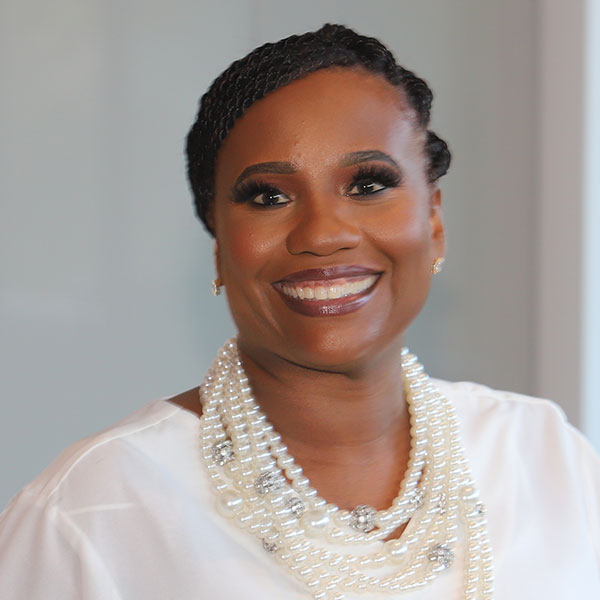
Dr. Dannette Berksteiner EdD, NCC, CCMHC, ACS, LPC, CTRTC
Dr. Dannette Berksteiner is a core counseling faculty member at University of Phoenix. She received a bachelor’s degree in workforce education training and development from Southern Illinois University Carbondale, a master’s degree in counseling from Webster University, and a doctorate in counselor education and supervision from Argosy University. Dr. Berksteiner is a Licensed Professional Counselor (LPC), National Certified Counselor (NCC), Certified Clinical Mental Health Counselor (CCMHC), Approved Clinical Supervisor (ACS), Choice Theory Reality Therapy Certified (CTRTC), and Mindfulness Based Stress Reduction (MBSR) Qualified Teacher Level 1. Dr. Berksteiner was a recipient of the 2014 NBCCF Minority Fellowship Program (Doctoral). Prior to entering the counseling profession, she practiced as a Licensed Practical Nurse for over 10 years. Therefore, she implements a holistic and integrative approach to client treatment. Dr. Berksteiner has over 20 years of experience as a clinical mental health provider and has had the opportunity to work with a vast population of clients that include children, adolescents, families, couples, and individuals. In addition to Dr. Berksteiner’s experience in health care and academia, she is also a well-sought-after speaker and trainer.
Dr. Berksteiner has presented at conferences and provided training at the local, regional, national, and international levels. These workshops and trainings include topics on the unique needs of the military population, integrative approaches to wellness, and multicultural awareness. She believes in the power of the community to heal, uplift, and empower others. This is demonstrated through her altruistic commitment to civic engagement in her local community and profession. Dr. Berksteiner has served on several national advisory council committees that support members of the counseling profession. Through her volunteerism and advocacy efforts, she embodies the servant leadership model while collaborating with individuals, organizations, and institutions to improve the lives of others.
Navigating Ethics and Crisis Management in Telemental Health
Telemental health has transformed the counseling profession, offering new opportunities and unique challenges. This webinar, presented by Dr. Michael Jones, will explore the critical intersections of professional ethics and crisis management in telemental health, highlighting their relevance to the Board Certified-Telemental Health (BC-TMH) certification.
Participants will gain insights into ethical decision-making frameworks tailored for telemental health settings, with an emphasis on upholding professional standards while navigating issues such as informed consent, confidentiality, and dual relationships. Dr. Jones will also provide strategies for effectively managing crises in virtual environments, including assessing risk, establishing safety protocols, and leveraging community resources to support clients in distress.
Drawing on his expertise as an NBCC Minority Fellowship Program Fellow and seasoned telemental health practitioner, Dr. Jones will illustrate how these principles can be applied to foster equity, accessibility, and ethical excellence in telemental health care. This webinar is ideal for mental health professionals looking to expand their telemental health expertise while meeting continuing education requirements.
- analyze the ethical challenges unique to telemental health, including issues related to confidentiality.
- apply best practices for managing client crises in a virtual setting, including identifying risk factors, implementing safety protocols, and engaging emergency resources.
- evaluate how the BC-TMH certification prepares counselors to address ethical and crisis-related challenges in telemental health practice.
Presenters
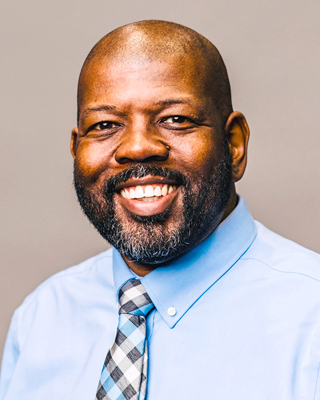
Michael Jones, PhD, NCC, BC-TMH, LPC-S
Dr. Michael Jones is a prominent counselor educator, clinician, and leader in the mental health counseling profession. With over a decade of higher education experience, he is a Professor of Counseling and Director of Continued Education at the University of the Cumberlands, where he teaches graduate-level courses, mentors future counselors, and leads programs aligned with CACREP standards.
Dr. Jones earned his PhD in counselor education and supervision from Regent University, with a dissertation titled Cultural Homelessness: Analyzing Self-Esteem Between Biracial and Monoracial Adults. He also holds an EdS in professional counseling from Harding University, an MA in clinical pastoral counseling from Ashland Theological Seminary, and a BS in child development and family studies from Freed-Hardeman University.
An expert in telemental health, Dr. Jones provides the nationally recognized Board Certified-Telemental Health Provider (BC-TMH) training, which has equipped more than 8,000 clinicians to integrate technology into mental health practice. His research interests include African American mental health, ethical practice in counseling, telemental health, and artificial intelligence applications in clinical settings.
Dr. Jones is a prolific author, contributing to peer-reviewed articles, book chapters, and newsletters on topics such as cultural dynamics in supervision, ethical considerations in private practice, and digital storytelling in counselor education. His upcoming co-edited book, Mental Health and the Black Man: A Mixtape Experience of Hardship and Harmony (summer 2025), examines the intersection of culture and mental health. A leader in the profession, Dr. Jones is the immediate past President of the Southern Association of Counselor Education and Supervision (SACES) and a member of the NBCC Foundation Minority Fellowship Advisory Council. His work has earned numerous accolades, including the ArCA Blair Olson Distinguished Professional Service Award and the ArACES Rosenthal Award for Counselor Educator of the Year. Dr. Jones is a sought-after speaker, presenting nationally and internationally on topics such as telemental health, cultural inclusivity, and innovative uses of AI in education. His dedication to mentorship, advocacy, and advancing the counseling field underscores his lasting impact on the profession.
NBCC Foundation has been approved by NBCC as an Approved Continuing Education Provider, ACEP No. 805. Programs that do not qualify for NBCC credit are clearly identified. NBCC Foundation is solely responsible for all aspects of the programs.
Each state sets its own requirements for licensure, including continuing education requirements to maintain licensure. Questions about CE requirements for state licensure should be directed to your state board. You can find their contact information on our state board directory.
